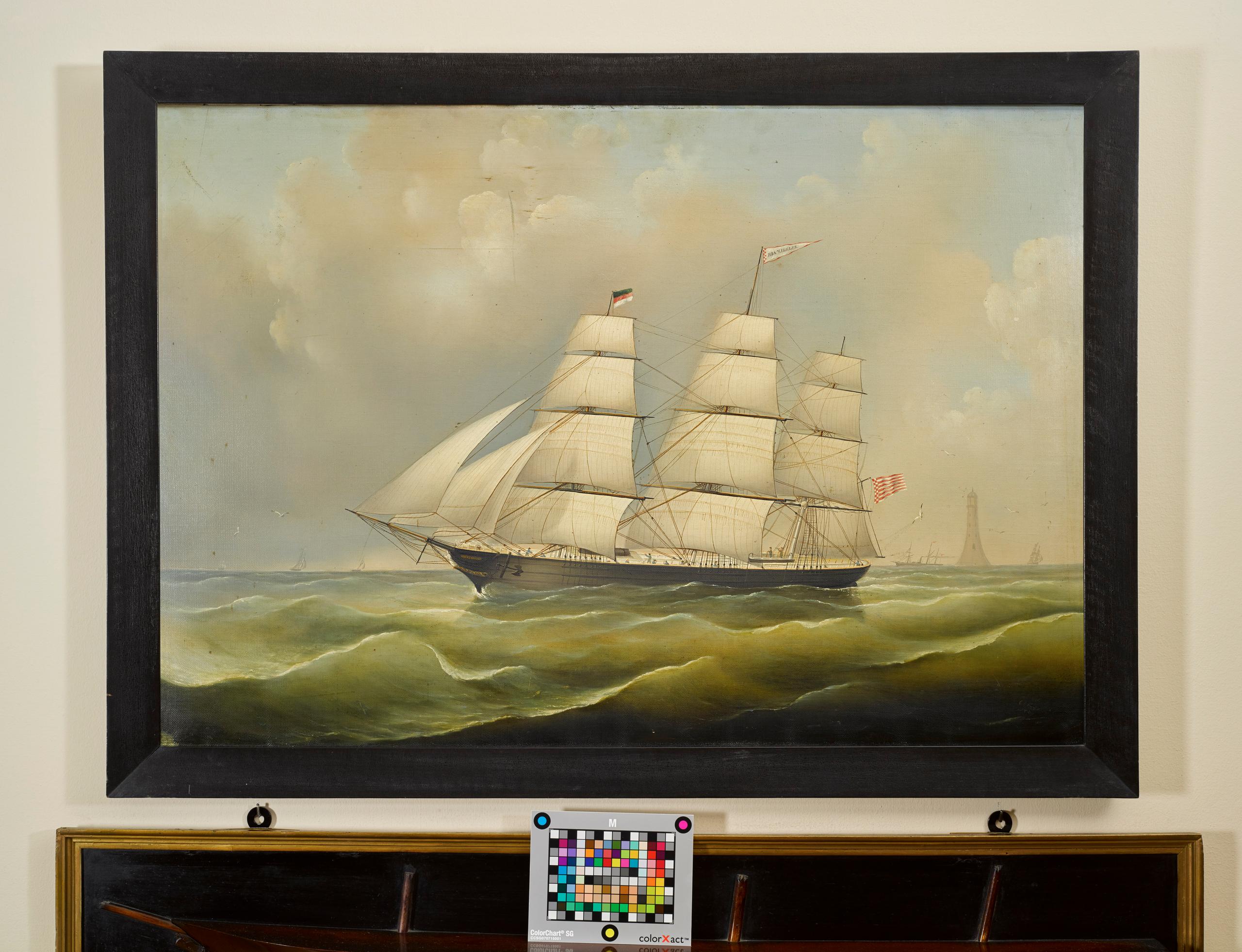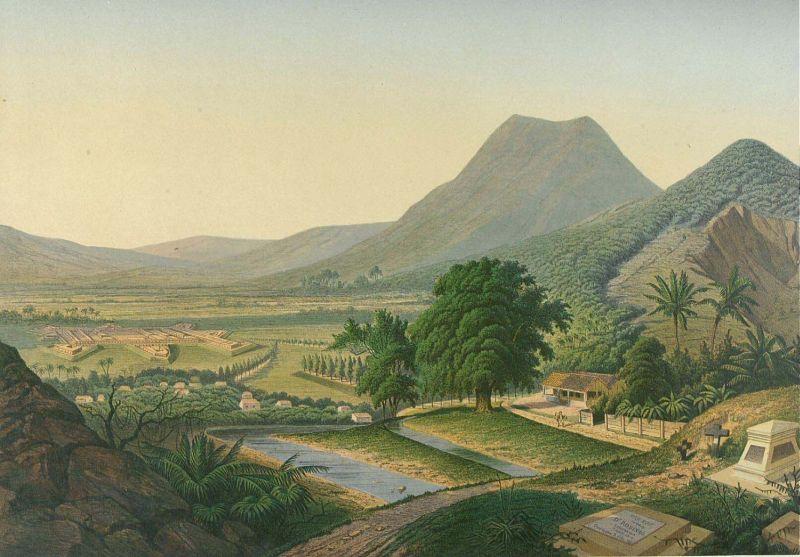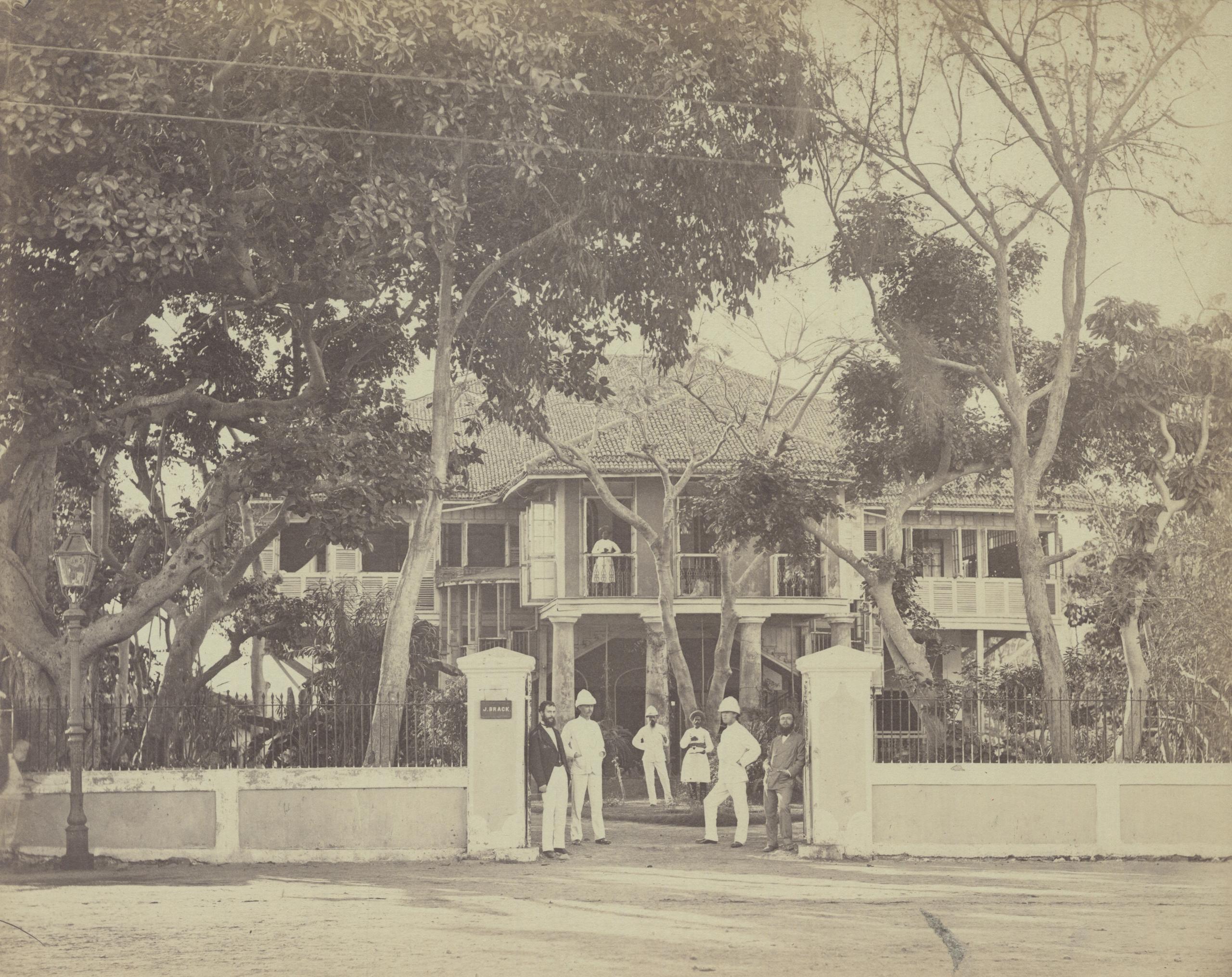How Switzerland profited from colonialism

Switzerland had no colonies of its own – which was exactly why it was able to profit from colonialism. The country’s relationship with the great colonial powers allowed it to cement its economic position in the world.
It was probably the lack of colonial ambitions that helped the Swiss win acceptance among the European powers. Indeed, the economist Richard Behrendt commented 90 years ago that Switzerland profited more from imperialism than the great European powers themselves, who were burdened down with the costs of maintaining their empires.
Those who succeeded in gaining access to the colonies were able to reap huge rewards, with the upper classes being the main beneficiaries.
Officers and merchants
Swiss were taken on by the Dutch and British East India companies from as early as the beginning of the 17th century. Most met with a miserable fate. Some military officers, however, managed to build fortunes and make useful contacts. They entered the plantation business and grew sugar or other products, using African slaves as labourers.
Some trading companies in Switzerland – such as Christoph Burckhardt’s firm in Basel and Louis de Pourtalès in Neuchâtel – earned large sums through the three-way trade between Europe, Africa, and America in textiles, slaves, and plantation produce. And it was not just private firms which invested in transatlantic trade: in 1719, the city of Bern, for instance, was the biggest investor in the British South Sea Company, which provided slaves to the British colonies in southern America.
Andreas Zangger is a freelance Swiss historian based in Amsterdam. Both his dissertation Colonial Switzerland and book (in English) The Swiss in SingaporeExternal link focus on Swiss expatriates and their relations with the colonial powers. He also works regularly for the Johann Jacobs Museum in Zurich, which has mounted several exhibitions examining the history of global networks. Zangger’s current project, an exhibition at the Heiden Museum in Switzerland, explores the biographies of people from Appenzell who went to Indonesia
Textiles: prized fabrics
Colonial trade brought highly prized fabrics from India to Europe and, with them, the technologies to process and dye cotton. This kick-started an industry making imitations of Indian fabrics, a model that continued into the 19th century.
Neighbouring countries’ high tariff barriers forced the Swiss textiles industry to concentrate on markets further afield. Firms copied and manufactured foreign patterns and then sold them on more cheaply than local handmade wares.
This enterprise required sustainable global networks. Young merchants travelled to important trading locations on assignments for the textiles industry and built branch offices. Communications weren’t easy in a time where the journey to southeast Asia took three to four months. Merchants were only willing to run the risks involved because they had the imperial powers’ military and legal protection. This also applied in countries that weren’t colonies, such as Japan, China, Thailand, Iran and the Ottoman Empire.
Successful commodities traders
Trading in resources from the colonies – commodities for use in industry in Europe – was a riskier but more lucrative undertaking. Some trading companies were very successful. André in Lausanne was a leader in the grain trade. Volkart of Wintertur, which had branches in British-ruled India, built a global enterprise on trading cotton and coffee. For half a century, Siber Hegner dominated the silk trade in Japan. The Basel Missionshandelsgesellschaft, or Mission Trade Company, invested in cocoa-growing in Ghana and became a key player in that trade.
Back in Switzerland, trading companies boosted the development of the Swiss financial industry. Some successful merchants from the colonies ended up on the management boards of insurance companies and banks when they returned. The trading companies named above laid the groundwork for the modern commodities trade in Switzerland.
Swiss expertise in trade and financial services developed over a long time. And the commodities business still profits from colonialism – indirectly. Colonialism left behind a series of weak states with corrupt governments in Africa and in Europe, a widespread indifference about exploiting the wealth of the land there.
Boost for science and tech
Science and technology also profited from access to the colonies. The tropics opened up interesting fields of research in geography, biology, paleontology and anthropology. Pharmacologists were interested in indigenous plant medicine. Academic careers were launched on the back of travels abroad or working with tropical materials in Swiss laboratories. Geologists explored jungles and deserts on behalf of Shell or other oil companies.
Just as the first wave of industrialisation was built on cotton and foreign patterns, the second wave – chemicals, cars and electronics – was built on raw materials from the colonies. Cheap rubber from plantations in Malaysia, Sumatra and Ceylon provided the impetus. The search for promising new raw materials intensified. Europeans’ industrial plantations cleared huge swathes of the jungle. Many Swiss worked on these plantations. A few became extremely rich that way and flaunted their wealth after their return to Switzerland in villas with opulent gardens.
But this handful of millionaires from the colonies had only a small impact on the economy. Much more significant was Switzerland’s standing in the international economic order, which emerged during the colonial era. This came from the commodities dealers and the manufacturers. It was thanks to this access to the colonies and their commodities that Switzerland was able to itself as a leading industrial nation.
Translated from German

In compliance with the JTI standards
More: SWI swissinfo.ch certified by the Journalism Trust Initiative




Join the conversation!